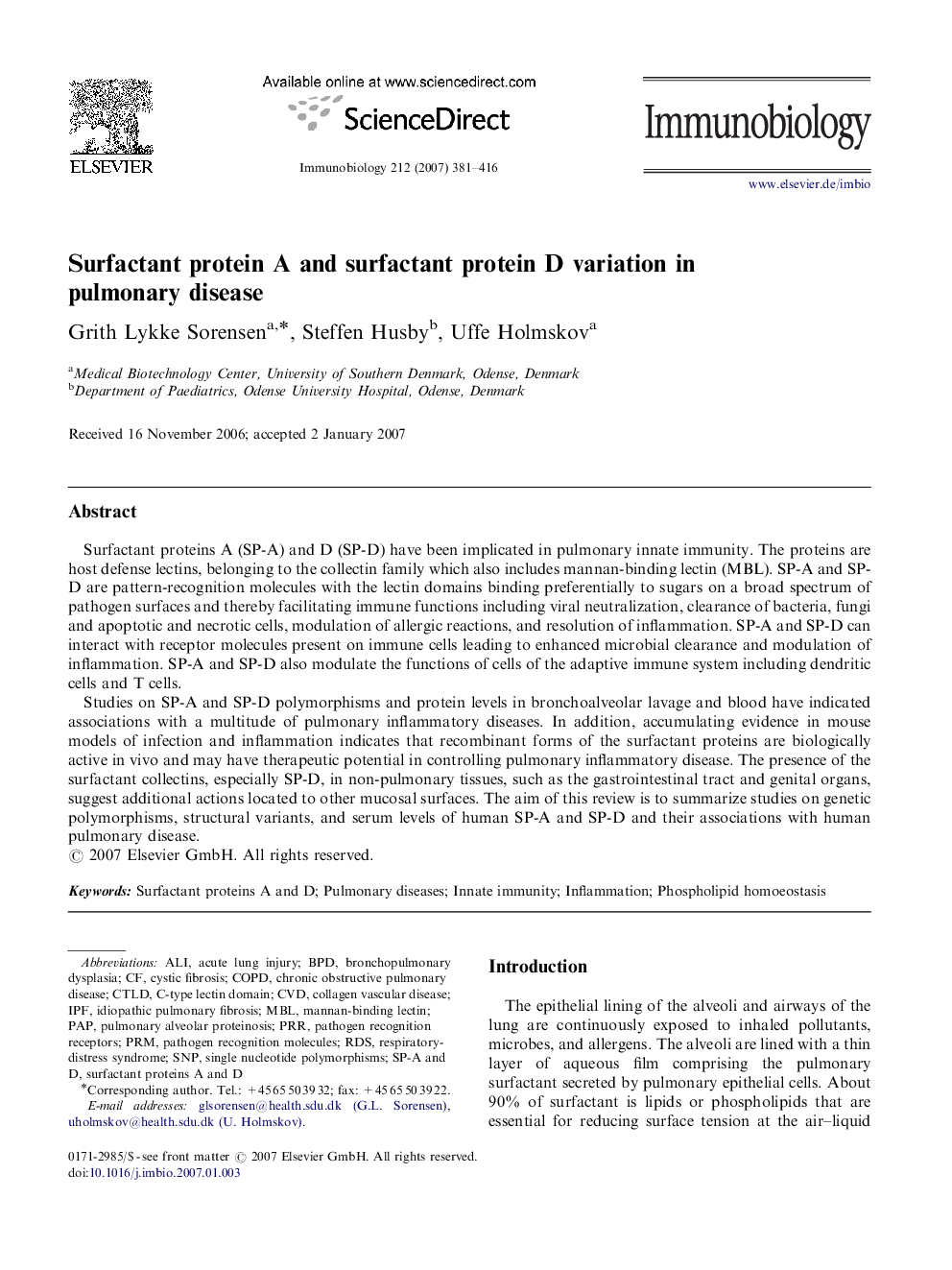| Article ID | Journal | Published Year | Pages | File Type |
|---|---|---|---|---|
| 8472168 | Immunobiology | 2007 | 36 Pages |
Abstract
Studies on SP-A and SP-D polymorphisms and protein levels in bronchoalveolar lavage and blood have indicated associations with a multitude of pulmonary inflammatory diseases. In addition, accumulating evidence in mouse models of infection and inflammation indicates that recombinant forms of the surfactant proteins are biologically active in vivo and may have therapeutic potential in controlling pulmonary inflammatory disease. The presence of the surfactant collectins, especially SP-D, in non-pulmonary tissues, such as the gastrointestinal tract and genital organs, suggest additional actions located to other mucosal surfaces. The aim of this review is to summarize studies on genetic polymorphisms, structural variants, and serum levels of human SP-A and SP-D and their associations with human pulmonary disease.
Keywords
C-type lectin domainCTLDPRMIPFRDSPAPMBLBPDPRRAcute lung injuryinflammationAliInnate immunityChronic obstructive pulmonary diseaseCOPDPulmonary diseasesCollagen vascular diseaseBronchopulmonary dysplasiaCVDidiopathic pulmonary fibrosisCystic fibrosisMannan-binding lectinPulmonary alveolar proteinosisSingle nucleotide polymorphismsSNPpathogen recognition receptors
Related Topics
Life Sciences
Biochemistry, Genetics and Molecular Biology
Cell Biology
Authors
Grith Lykke Sorensen, Steffen Husby, Uffe Holmskov,
